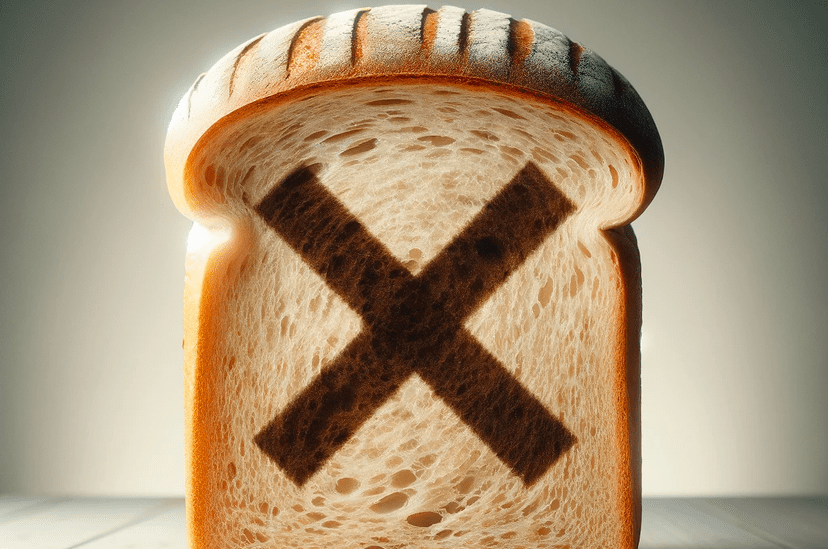Does a 400 and 600 Calorie Diet Plan Help Weight Loss?[ANSWERED]
![Does a 400 and 600 Calorie Diet Plan Help Weight Loss?[ANSWERED]](https://img.imageboss.me/onestep/width/3840/format:auto,quality:80/assets/site/blog/does-a-400-and-600-calorie-diet-plan-help-weight-loss.png)
Understanding Low-Calorie Diets
Low-calorie diets, as the name suggests, are dietary plans crafted to reduce your daily caloric intake. The concept behind low-calorie diets hinges primarily on the energy balance hypothesis, which states that weight loss occurs as a result of an energy deficit—when you expend more energy (calories) than you consume.
When considering the specifics of low-calorie diets, let’s delve into two different degrees of calorie restriction: the 400 and 600 calorie diet plans. These stringent dietary regimens are not long-term generalized weight loss solutions for everyday individuals, but highly specific tools often facilitated in clinical or supervised settings for individuals who need to achieve rapid, substantial weight loss due to severe health concerns. It is crucial to remember that these diets should not be attempted without proper medical supervision due to their severity.
Principles of Low-Calorie Diets
The primary principle of low-calorie diets revolves around creating a calorie deficit. Your body, after all, requires a certain number of calories to perform basic functions, known as your basal metabolic rate, plus additional calories for physical activity. By consuming fewer calories than this total, you trigger your body to make up the energy deficit by burning stored fat.
However, it's crucial to maintain a balanced diet. Even while restricting calories, it's important to meet nutrient needs. A well-formulated low-calorie diet will often require careful planning or the use of commercially prepared meals or meal replacements to ensure nutrient adequacy.
400 Calorie Diet Plan Overview
A 400 calorie diet is a severe form of a very low calorie diet (VLCD). It is used under medical supervision to produce rapid weight loss in individuals who are extremely overweight or obese. Consuming only 400 calories a day, individuals on this diet are highly restricted in what they can eat.
While on a 400 calorie diet, individuals are often prescribed medically formulated meal replacements, such as protein shakes or bars, to provide essential vitamins and nutrients. Some diets may allow for a small amount of fruits and vegetables as well.
600 Calorie Diet Plan Overview
The 600 calorie diet is another form of VLCD, but it allows for slightly more caloric intake. Again, this diet is not for general weight loss but is often applied in a medical setting.
This diet, much like the 400 calorie diet, would likely rely on specially formulated meal replacements to meet nutrient requirements. However, with a little more flexibility, it might incorporate a broader range of foods like lean proteins, non-starchy vegetables, and potentially small amounts of whole grains and fruits.
Both of these diets are drastic, short-term measures enacted to facilitate rapid weight loss in individuals where the benefits outweigh the concerns of rapid weight loss. They are not suitable for the average person looking to lose weight in a sustainable and healthy manner. These diets require careful medical supervision for effective and safe application. Always consult a health professional before embarking on such severe dietary restrictions.
Pros and Cons of Extreme Calorie Restriction
Maintaining an extremely low-calorie diet, such as a 400 or 600 calorie diet plan, has been a contentious issue in nutrition science. While these diets can offer significant short-term weight loss, they also come with various potential health risks. This section will dive deeper into the advantages and disadvantages of such extreme calorie restrictions, exploring the potential benefits, the health risks, and the sustainability of these diets in the long run.
Potential Benefits of Low-Calorie Diets
Extreme calorie restriction diets can foster substantial weight loss in a short span. They work by creating a significant calorie deficit, forcing the body to use stored fat as its primary fuel source. This can lead to rapid weight loss, significantly more than traditional low-calorie diets.
A study published in the "International Journal of Obesity" found that individuals following a very-low-calorie diet, consuming around 500 to 800 calories a day, experienced significant weight loss in just four weeks. Other research has indicated potential improvements in biometrics such as cholesterol levels and blood pressure following these diets.
However, it's critical to maturely comprehend that these apparent benefits often come with potential risks.
Health Risks Associated with Extreme Calorie Reduction
While rapid weight loss may seem appealing, extreme calorie restriction can lead to a range of potential health issues. These include:
- Nutrient deficiency: Consuming only 400 to 600 calories a day makes it challenging to get the necessary nutrients your body needs to function optimally, increasing the risk of vitamin and mineral deficiencies.
- Loss of muscle mass: When calories are significantly reduced, the body can begin to break down muscle tissue for energy, leading to a loss of muscle mass.
- Metabolic slowdown: Your body may respond to low calorie intake by slowing down its metabolic rate to conserve energy, making it harder for you to lose weight in the long run.
More severe health risks, including gallstones or cardiac complications, are potential concerns for those adopting such an extreme diet.
Sustainability and Long-term Effects
Perhaps one of the most significant disadvantages of these diets is their lack of sustainability. Adhering to such an extremely low-calorie intake for an extended period is not feasible for most individuals, leading to a yo-yo effect, where the weight is regained rapidly upon returning to a normal caloric intake.
Furthermore, numerous studies suggested that moderate calorie restriction, balanced with regular physical activity, is much more beneficial for long-term weight management. Prolonged extreme calorie restriction can not only lead to health complications but set up an unhealthy relationship with food, promoting disordered eating patterns.
Thus, while it's possible to see dramatic weight changes
with this form of diet, its side effects and the overall difficulty in maintaining such a scarce intake make it less favorable for sustainable, healthy, long-term weight loss. Opt for a balanced diet plan and regular exercise, supported by gradual behavior and lifestyle changes for optimal, lasting health benefits.
Alternatives and Healthy Approaches to Weight Loss
If you're considering an extreme low-calorie diet, you may want to reconsider. Though dramatic calorie restriction can lead to rapid weight loss, it's not only unsustainable, but can also be harmful to your health in the long term. Instead of opting for diets such as the 400 or 600 calorie dietary plans, consider more sustainable and healthier alternatives for weight loss. These alternatives will not only cater to your nutritional needs, but they can also help you maintain a healthier lifestyle once you've reached your weight loss goals.
Balanced Diet for Sustainable Weight Loss
A balanced diet is essential for sustainable weight loss. It incorporates all the key nutrient groups, providing your body with the necessary nutrients it needs to function optimally. This implies including the right amounts of proteins, carbohydrates, fats, vitamins, and minerals in your diet.
The idea behind a balanced diet is not to exclude any particular food group, but to balance them in a way that promotes health and weight loss. Low-calorie doesn't necessarily mean healthy, and you may not get the nutrition you need from a diet that's too restrictive. Therefore, it's essential that you focus on the quality of the calories you consume, and not just the quantity.
For instance, filling up on nutrient-dense foods like fruits, vegetables, lean proteins, and whole grains can help you feel satisfied while still maintaining a calorie deficit, which is necessary for weight loss.
Importance of Regular Physical Activity
Regular physical activity plays a vital role in weight loss and overall wellbeing. Exercise not only burns calories but also boosts your metabolism and improves your body's overall efficiency at burning energy.
While the necessary amount might vary based on individual factors, the American Heart Association recommends at least 150 minutes of moderate-intensity aerobic activity or 75 minutes of vigorous aerobic activity per week, or a combination of both, along with moderate- to high-intensity strength training activities at least two days per week.
Adopting a Holistic Approach to Health
Sustainable weight loss isn't just about eating less and exercising more. It involves a complete lifestyle change that includes a healthy diet, regular physical activity, plenty of sleep, and good mental health.
Adopting a holistic approach to wellness allows you to take care of your whole self, not just your weight. It's important to understand that the key to long-term weight loss success lies in creating a healthy, sustainable lifestyle that you can adhere to in the long run.
Set realistic goals and make gradual, lasting changes that improve your health and wellbeing. Remember, the goal is not to just lose weight, but to become healthier, stronger, and more fit, while keeping the weight off in the long term.
Consider seeking guidance from a registered dietitian or a health coach who can provide personalized advice based on your individual nutritional needs and lifestyle habits. After all, there's no one-size-fits-all approach to weight loss and health.
In Summary
The blog post emphasizes the principles and specifics of low-calorie diets, especially the severe forms known as Very Low-Calorie Diets (VLCDs) such as the 400 and 600-calorie diet plans. These diets aim to create significant energy deficit to trigger weight loss, but they require careful supervision and management due to the substantial health risks they pose.
Potential benefits include rapid weight loss, and potential improvements in cholesterol levels and blood pressure. However, the potential risks include nutrient deficiency, loss of muscle mass, metabolic slowdown, and severe health problems such as gallstones or cardiac complications.
An important takeaway from the article is the unsustainability of VLCDs due to their strict constraints and the fact they could potentially propagate an unhealthy relationship with food, encouraging disordered eating patterns.
Instead of extreme calorie restriction, the blog advocates for balanced diet plans, regular exercise, and gradual behavioral changes for healthier, sustainable, and long-term weight loss. This way, the argument does not just revolve around cutting down on calories, but emphasizing nutrient-rich foods and a well-rounded lifestyle.
Plan of Action
If you are considering a diet program with significant calorie reduction, remember these diets should be considered serious medical treatments requiring careful monitoring by professionals, and are not suggested for general weight loss. Instead, consider adopting a Balanced Diet for Sustainable Weight Loss and regular physical activity for optimal results.
Action Steps
Here are the suggested steps to follow a healthier approach towards weight loss and overall wellbeing:
- Adopt a Balanced Dietary Approach: Include all nutrient groups in your diet: proteins, carbohydrates, fats, vitamins, and minerals. Check the quality, not just the quantity, of your caloric intake by choosing nut
rient-dense foods. 2. Regular Physical Activity: Follow the American Heart Association's guidelines for at least 150 minutes of moderate-intensity or 75 minutes of vigorous aerobic activity per week, along with strength training activities two days a week. 3. Holistic Wellness: Ensure to take care of your mental health and maintain adequate sleep in addition to a healthy diet and exercise. 4. Gradual Lifestyle Changes: Make reasonable modifications to your lifestyle and dietary patterns. Remember, health and weight management is a long-term commitment and requires sustainable, balanced behaviours rather than drastic, short-term measures. 5. Professional Guidance: Consider seeking advice from a registered dietitian or a health coach who can provide personalized advice based on your individual nutritional needs and lifestyle.
![How Many Calories Does 10,000 Steps Burn? [ANSWERED]](https://img.imageboss.me/onestep/width/828/format:auto,quality:80/assets/site/blog/how-many-calories-does-10000-steps-burn.png)










